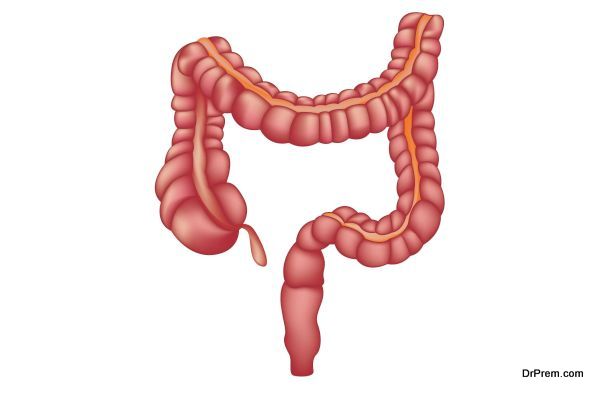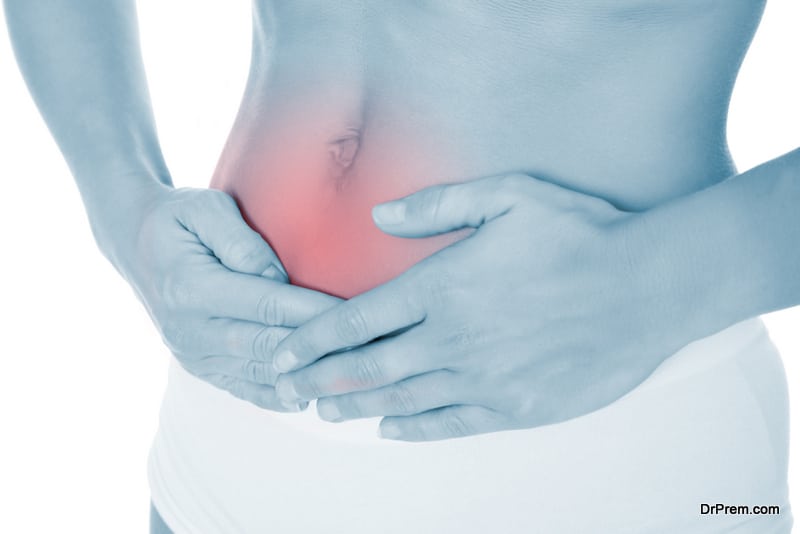It’s not uncommon to suffer from heartburn, mild nausea or even gas cramps and pain. These conditions are caused by a host of different factors including diet, illness, or even food poisoning. But for some individuals, stomach complications are a part of everyday life. And sadly, their conditions are rare, making them more difficult to diagnose and treat. In order for a condition to be considered rare, it must affect less than 200,000 individuals. Here are three of the rarest stomach conditions along with their symptoms, and treatment options.
1. Cyclic Vomiting Syndrome

Cyclic vomiting syndrome (CVS) includes severe bouts of nausea followed by vomiting and impacts both adults and children. Symptoms of this disorder are pretty easy to recognize and often occur in four phases.
Phases of Vomiting Syndrome
The first phase of CVS is virtually symptom free. That’s because it’s the period of time between the vomiting episodes when a person is feeling relatively normal. Phase one of CVS can last for several weeks or months. Phase two is when individuals start feeling nauseous but are not yet vomiting. These feelings of an uneasy stomach can last for several minutes to several hours. The third phase of CVS is the worst. This is when the feelings of nausea progress to actual vomiting. Other physical symptoms include stomach pains, headache, chills, sensitivity to light and sound, diarrhea, and the inability to ingest any food or drink without throwing up.
Sadly, this phase of the disorder can last for several hours or several days. During this time, individuals are virtually incapacitated and are at risk for dehydration and extreme fatigue. The recovery of this phase is known as the fourth and final phase of CVS. This is when patients find relief from phase three. Their symptoms will subside and they will eventually return to normal activities and diet without interruption.
Available treatment
For patients suffering from CVS there is no known cure but instead medications and methods to help ease some of the symptoms. Certain medications can help reduce feelings of nausea, while also reducing the production of stomach acids. Anti-anxiety medication may be required to help calm people down. In extreme cases of dehydration, some individuals may need to visit a hospital to receive fluids intravenously.
2. Short Bowel Syndrome

Short bowel syndrome, also known as short gut or intestinal failure, and is related to the small intestine and its inability to absorb nutrients. What makes this disorder so rare is that it generally only affects those individuals who have had part of their small intestine removed. The part of the intestine that remains is simply not enough to absorb the amount of fluids and nutrients the body need to function properly.
Symptoms
Certain diseases and disorders can also affect the small intestine and its ability to absorb nutrients efficiently. The main symptom of short bowel syndrome is severe diarrhea. Like vomiting, over time, this can cause dehydration, malnutrition, and unwanted weight loss.
Because the primary side effect of this disorder is malnutrition, treatment is focused primarily on nutritional support including medication, oral hydration options, and both parenteral and enteral nutrition approaches. It’s important to note that continued use of parenteral nutrition may lead to complications including blood clots, liver failure, and blood infections. If this occurs, short bowel syndrome sufferers may require an intestinal transplant or liver transplant if extensive damage occurs. Researchers are actively working to find solutions to this disorder, including ways to help the portion of the small intestine that remains function more efficiently.
3. Leaky Gut Syndrome

Although some doctors don’t recognize leaky gut syndrome as an actual condition, for those that suffer from the symptoms and effects of this disorder, it’s a reality. This condition is also related to the intestines but more the lining of them rather than their direct function.
Leaky gut syndrome is a digestive condition where toxins and bacteria from the body are able to “leak” through a person’s intestinal walls and enter their bodies. To understand how this condition occurs, you must first understand how the human digestive system and intestinal walls work.
Your digestive system is what breaks down your food and allows needed nutrients to enter the body. But your digestive system also protects your body and organs from harmful substances via the strong walls of your intestinal system. Your intestines have small holes or gaps where healthy, necessary fluids and nutrients are released into your bloodstream and fed to your organs. When these gaps weaken and allow toxins and other bacteria to pass through these gaps or “leak” into your system, it is known as leaky gut syndrome. Your immune system will instantly react to these toxins by exhibiting symptoms like bloating, fatigue, food sensitivities, and additional digestive issues.
Causes
So what causes leaky gut syndrome? There are several different factors that are related to the onset of leaky gut symptoms. They include, but are not limited to:
- Inflammation throughout the body
- A diet high in sugar
- Chronic stress
- Excessive alcohol intake
- Continued use of NSAIDs (non-steroidal anti-inflammatory drugs)
- Yeast overgrowth
- An overabundance of harmful bacteria in the stomach
There’s no known cause for this condition, especially since many medical professionals deny its existence. But for those who suffer from leaky gut, there are several things you can do to help ease the symptoms and treat the condition.
Treatment
 Try adopting a leaky gut diet plan. This will help you choose foods low in sugar and ones that help heal your digestive tract. Avoiding foods that aggravate your condition may also help. These include vegetable oils, processed meats, and refined sugars. Taking probiotics can also help to balance the healthy and harmful bacteria in your stomach. Because chronic stress is related to a healthy gut and leaky gut symptoms, try to reduce stress in your life. Avoid excessive smoking and drinking, as both of these habits can aggravate or even cause leaky gut symptoms like inflammation. Getting adequate sleep is another way to ward off this disorder and other digestive complications.
Try adopting a leaky gut diet plan. This will help you choose foods low in sugar and ones that help heal your digestive tract. Avoiding foods that aggravate your condition may also help. These include vegetable oils, processed meats, and refined sugars. Taking probiotics can also help to balance the healthy and harmful bacteria in your stomach. Because chronic stress is related to a healthy gut and leaky gut symptoms, try to reduce stress in your life. Avoid excessive smoking and drinking, as both of these habits can aggravate or even cause leaky gut symptoms like inflammation. Getting adequate sleep is another way to ward off this disorder and other digestive complications.
Just because these stomach disorders are rare doesn’t mean if you suffer from them that you’re alone in your struggle. Arming yourself with information and knowledge about the symptoms and treatment options will help you identify your condition and choose the proper treatment plan.
Article Submitted By Community Writer




